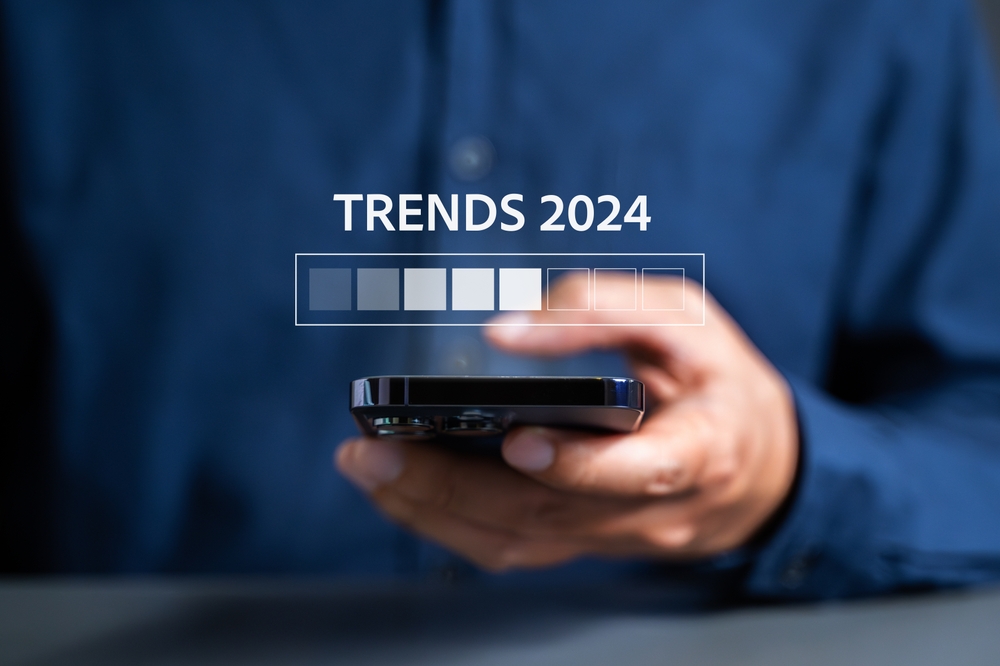Written by Neelesh KripalaniChief Technology Officer, Clover Infotech
Once again, we have reached that time of the year where tech enthusiasts tend to predict which upcoming tech trend will shake up our lives in the near future. The technology landscape across the world is undergoing constant reforms with new trends continually reshaping our world in numerous ways. Here are some technology trends that will gain momentum and further develop in 2024:
Technology trends in 2024
Generative AI democratized
Generative AI is becoming more popular thanks to the confluence of massively pre-trained models, cloud computing and open source, making these models accessible to everyone around the world. GénAI will level the playing field in terms of access to information and skills for a wide range of business roles and functions, making it one of the most disruptive trends of this decade.
Thus, Gartner predicts that by 2026, more than 80% of companies will have used GenAI APIs and models and/or deployed GenAI-enabled applications in production environments.
Sustainable technology
Sustainable technology is poised to revolutionize our future by reducing environmental impact, conserving resources and driving economic growth. It promotes clean energy, resource efficiency and economic resilience while increasing access to essential services and strengthening research and innovation. For example, cloud computing reduces carbon footprint through energy-efficient data centers, resource sharing, and scalability flexibility.
Many cloud providers are prioritizing the adoption of green energy and data center locations with favorable environmental conditions, thereby reducing their reliance on fossil fuels and further reducing their carbon footprint.
Such advancements in sustainable technologies offer more innovative solutions to address environmental challenges and pave the way for a greener future.
Managing trust, risk and security in AI
AI Trust, Risk, and Security Management (AI TRiSM) is an emerging technology trend that will revolutionize businesses in the years to come. The AI TRiSM framework helps identify, monitor and reduce potential risks associated with use AI technology in organizations – including the very popular generative and adaptive AI.
By using this framework, organizations can ensure compliance with all relevant data privacy regulations and laws. According to Gartner, AI TRiSM is a framework that supports the governance, trustworthiness, fairness, reliability, robustness, efficiency, and data protection of AI models.
Trust Architecture
In 2019, more than 8.5 billion data records were compromised. Despite advances in cyber security, malicious actors are always on the lookout for new cyberattacks. As a growing trend, trust architecture will help combat cybercrime.
One way to create a trust architecture is to use distributed ledgers, such as blockchain. Companies are increasingly focusing on creating a trust architecture because it reduces the risk of breaches and reduces the cost of complying with security regulations. It also reduces the expenses associated with ensuring overall security.
Platform engineering
A rapidly evolving technology trend, platform engineering focuses on creating and maintaining robust, scalable, and flexible platforms to support various applications and services. Key aspects include the adoption of cloud-native architectures, microservices and DevOps practices. Platform engineering uses an API-first approach that promotes interoperability and flexibility.
With the emergence of edge computing, platform engineers are expanding their efforts to create platforms that distribute computation closer to edge devices.
As we enter the year 2024, it would be interesting to see how these technologies will evolve and advance further. The global technology landscape presents enormous potential for growth. However, it will also face serious privacy, security and ethical challenges.
Anticipating the industry’s response to these complex challenges is an exciting prospect, as it will propel us towards a more resilient and responsible future.


